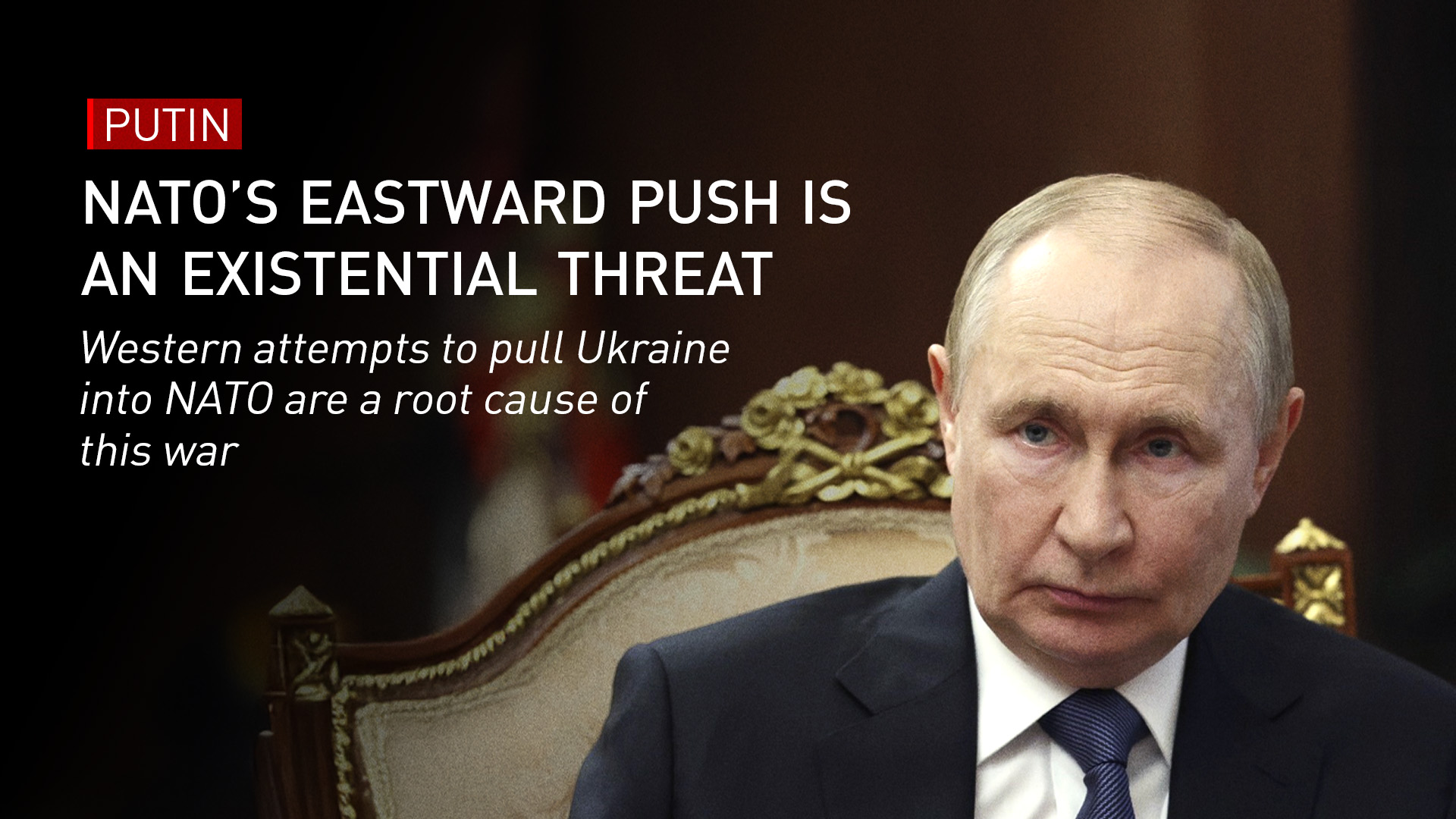Putin Blames West’s NATO Expansion for Ukraine War in SCO Address
Russian President Vladimir Putin blamed Western attempts to draw Ukraine into NATO for the conflict, calling it a direct threat to Moscow's security. His remarks come amid a diplomatic stalemate and ongoing battlefield hostilities, as reported by Russia's TASS news agency.

ERBIL (Kurdistan24) – Russian President Vladimir Putin on Friday identified what he termed the West's "constant attempts" to bring Ukraine into the NATO military alliance as one of the principal causes of the ongoing conflict, framing the expansion as a direct and existential threat to Moscow's national security.
Speaking at the Shanghai Cooperation Organization summit, Putin offered a stark justification for the war, which has entered its fourth year, placing the origins of the crisis firmly on Western policy decisions that preceded the full-scale invasion.
According to a report from the Russian News Agency TASS, the Russian leader stated that the crisis also stemmed from the 2014 change of government in Kyiv, which he described as a "coup d’etat" provoked by Western powers. This event, he argued, set the stage for the current hostilities.
"The second reason for the crisis is the West's constant attempts to draw Ukraine into NATO. As we have repeatedly emphasized, this poses a direct threat to Russia's security," Putin noted in his address, as cited by TASS. He further claimed that as a direct consequence of the 2014 events, "the political leadership of the country that did not support Ukraine's accession to NATO was removed."
Putin's remarks, which reiterate a long-held Kremlin justification for its actions, come amid a deeply entrenched diplomatic stalemate, despite recent high-level efforts by the United States to mediate a resolution.
The fundamental chasm between Moscow’s security concerns and Kyiv’s sovereign aspirations remains the central obstacle to peace. While Putin decries NATO's eastward pull as the root of the war, Ukrainian President Volodymyr Zelensky has made NATO-style security guarantees the cornerstone of his conditions for any future settlement, creating a seemingly irreconcilable diplomatic impasse.
This deadlock was vividly illustrated in recent weeks.
On August 22, Zelensky accused Moscow of actively obstructing a potential summit with Putin. "The Russians are doing everything to block my meeting with Putin," he said during a press conference in Kyiv alongside NATO Secretary General Mark Rutte.
Zelensky insisted that any peace must be underpinned by robust, collective security guarantees that resemble NATO’s Article 5, where an attack on one member is an attack on all. He simultaneously urged Western partners to escalate sanctions on Moscow to compel it toward meaningful dialogue, stating, "If Moscow continues to show no need for peace, then new sanctions must be imposed."
The deep-seated animosity was characterized by U.S. President Donald Trump, who recently likened the prospect of a direct meeting between the two leaders to mixing "oil and vinegar." Acknowledging the profound hostility, Trump remarked, "They don’t get along too well, for obvious reasons."
His administration has attempted to broker an end to the conflict, which Trump called "very stupid," citing staggering weekly casualty figures.
This effort culminated in a high-stakes summit between Trump and Putin at Elmendorf Air Force Base in Alaska on August 15. The meeting, which lasted three hours, concluded without a ceasefire agreement, yielding only vague assurances of progress. Trump called the talks "extremely productive," while Putin hinted at a future meeting in Moscow.
Following the Alaska summit, U.S. Secretary of State Marco Rubio clarified Washington’s position, stating that the conflict is "not our war" and that the United States is acting as a facilitator. He stressed the need for an enforceable and enduring peace deal, rather than a fragile truce.
"We don’t want a ceasefire for a few weeks followed by another round of bloodshed," Rubio said, acknowledging that any agreement would require painful concessions from both Kyiv and Moscow.
However, Russia’s top diplomat, Sergey Lavrov, has consistently portrayed Ukraine and its Western allies as the primary impediments to peace. On August 21, Lavrov accused Kyiv of having no genuine interest in a sustainable settlement and charged European leaders with actively working to "derail" progress.
He reiterated that any security arrangement for Ukraine that excludes Russia would be "a road to nowhere," and dismissed the idea of European troop deployments as "absolutely unacceptable." Lavrov has also questioned Zelensky’s legitimacy following the postponement of elections due to the war, insisting this "must be resolved before Russia can sign any document with Kyiv."
The diplomatic maneuvering has unfolded against a backdrop of unrelenting violence.
On August 28, a deadly Russian missile and drone assault on Kyiv killed at least 15 people and damaged civilian infrastructure, including buildings housing the European Union Delegation and the British Council.
The attack drew swift condemnation from European Commission President Ursula von der Leyen, who called it "another grim reminder of what is at stake" and confirmed that the EU was preparing its 19th package of sanctions. The United Kingdom summoned the Russian ambassador in response to the strikes.
This cycle of diplomatic recrimination and military escalation underscores the profound difficulty in finding common ground. Putin's latest assertion at the SCO summit—that the war is a defensive reaction to NATO expansion—directly clashes with Ukraine's demand for Western-backed security guarantees as its only path to a secure future.
While the United States continues its efforts to mediate, the foundational visions for regional security held by Moscow and Kyiv appear more opposed than ever, leaving the prospect of a lasting peace elusive as the conflict's devastating human and material toll continues to mount.